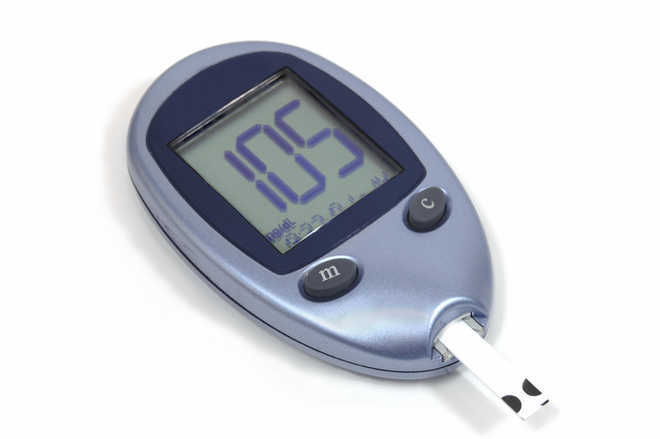
Photo for representation only.
Intensive glucose control in diabetes can up death risk
A team of researchers has found that the common approach of intensive glucose control to achieve low-blood sugar targets in Type 2 diabetes can increase the risk of mortality. Looking at data from over 300,000 people in the UK, collected between 2004 and 2015, researchers found that lower levels of glycated haemoglobin - typically regarded as being good diabetes control - were associated with increased mortality risk, compared to moderate levels, especially in conjunction with intensive treatments that could cause hypoglycaemia. A researcher said: "Treatment guidelines generally recommend therapeutic strategies that aim for low levels of glucose control, on the understanding that it reduces risk of macrovascular complications such as coronary artery disease and stroke. Contrary to this belief, our findings show persuasively that there is an association with increased mortality risk and what is considered to be good glucose control, or low HbA1c." The findings of the study also suggested that neither randomised trials nor observational studies have been able to demonstrate a consistent pattern of association between levels of glucose control and adverse outcome, without any explanation as to why. Thus, the optimal target for glucose control in patients with Type 2 diabetes remains uncertain. Furthermore, the pattern of mortality in relation to glucose control differed in relation to differing types of diabetes drugs. Of most concern was an increase in mortality risk in those with 'good control' with Type 2 diabetes who were treated with insulin and other glucose lowering drugs that induce hypoglycaemia. The study appears in Journal Diabetes, Obesity and Metabolism.
Stem cell therapy can reverse Type 1 diabetes
Scientists have reversed Type 1 diabetes in mice using stem cell therapy, paving the way for new treatments for the chronic disease in humans. In the study, mice with Type 1 diabetes were infused with pre-treated blood stem cells to produce more of a protein called PD-L1, which has a potent anti-inflammatory effect against Type 1 diabetes. The treated stem cell could curb the autoimmune reaction of the cells and reverse the abnormally high blood glucose condition in mice. Almost all the mice were cured of diabetes in the short term, while one third maintained normal blood sugar levels for the duration of their lives. There's really a reshaping of the immune system when you inject these cells, said a researcher. Blood stem cells have immune-regulatory abilities, but it appears that in mice and humans with diabetes, these abilities are impaired. In diabetes, blood stem cells are defective, promoting inflammation and possibly leading to the onset of disease. The study, published in the journal Science Translational Medicine, found that the production of PD-L1 is altered in blood stem cells from diabetic mice and humans. This prevents production of PD-L1, even early in the disease. When a healthy gene was introduced for PD-L1 into the stem cells, the treated cells reversed diabetes in the mice. — Agencies



























